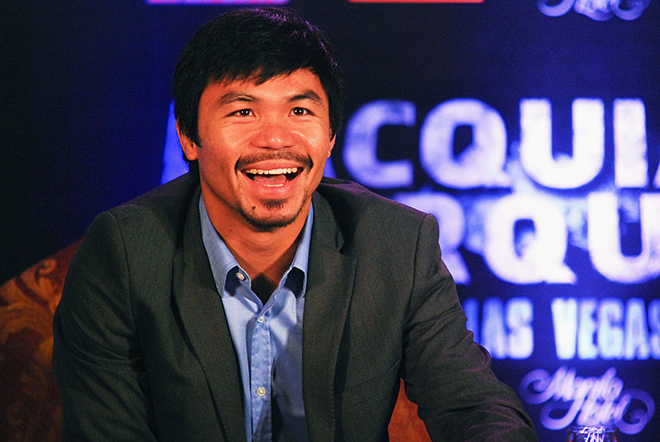World boxing star Manny Pacquiao, whose sporting career has cooled amid the coronavirus pandemic, is hoping to turn his celebrity status in the Philippines and beyond into commercial success for his two financial technology ventures in an increasingly crowded market.
 |
|
Manny Pacquiao. |
Pacquiao, ranked among the top professional boxers in the world, announced at a virtual technology conference in December 2020 that a digital payment solution bearing his name will be launched in early 2021. A year earlier, he had launched Pac Token, a digital currency.
But with almost every country in Asia betting on technology to innovate financial transactions, it may not be as easy for Pacquiao, with a personal net worth of 30 billion pesos in 2018, to deliver the same knockout punches in the fintech space as he does in the boxing ring.
At home, the proposed payments product PacPay will duel with entrenched fintech platforms operated by the two largest telecom companies in the country, PLDT Inc. and Globe Telecom, the latter of which named Pacquiao as its brand ambassador in 2020. Beyond the Philippines, competition is fierce in every Southeast Asian market, not to mention in the vast China fintech space.
PacPay, being built by a Singapore-based company Pacquiao co-founded in May 2020, will offer perks such as limited edition autographs, merchandise and event tickets. It will also aim to make cross-border transactions easier for Filipinos, especially overseas workers.
“Amid this pandemic, we have seen an incredible opportunity to adopt digital technology, including global digital payments,” he said at a panel discussion at the Singapore Fintech Festival held in partnership with the island nation’s central bank.
To run PacPay, Pacquiao appointed Sean Wong, his exclusive sports agent in Greater China, Taiwan and Hong Kong, as CEO. Before teaming up with the boxer, Wong represented Singapore in music festivals and competitions as a singer-songwriter and ran charity projects in Southeast Asia.
Treasure hunts
While Pacquiao’s venture plans to offer financial services to overseas Filipinos and the unbanked population, PacPay is also aiming to build a mobile app designed for fun, Wong said in a recent interview with S&P Global Market Intelligence.
With the mobile wallet, users will be able to transfer money, pay for groceries and bills or shop at retail stores and malls. They will also earn rewards to interact with brands, celebrities and influencers through interactive games and challenges.
“We will develop GPS treasure hunts and users can actually use loyalty points on our platform to be able to get things that they want,” Wong said, adding that a mobile point-of-sale system for contactless payment is also in the pipeline. A large attraction for Pacquiao fans worldwide may be collectible debit cards.
Wong admits that the fan base for the only boxer to win 12 world titles in eight weight divisions is an advantage, but it will take more than just Pacquiao’s name to push the business idea forward.
Loyal fans
Pacquiao, whose popularity gives him rockstar status in the Philippines, had announced his cryptocurrency venture to a packed venue in September 2019. He even burst into song, with thousands of fans cheering him at his first personal concert.
“I always wanted to do more for my fans,” he said at the event. Through the Pac Token digital currency, he said he could reward fans with loyalty points that they can redeem for exclusive photographs or merchandise and be invited to meet and greets. The tokens may also be used to support philanthropy and other charitable causes.
Fintech is ripe with possibilities in the Philippines, where remittance is a $30 billion industry, thanks to an estimated 12 million citizens living and working overseas and regularly sending money home. More than 50 million people, about half the country’s population, do not have bank accounts, according to central bank figures cited in local media.
In September 2020, Pacquiao’s digital payments company announced its partnership with Singapore-based Remsea Pte. Ltd., a fintech remittance firm licensed by the Monetary Authority of Singapore. Wong said similar partnerships for the payments venture are being discussed across Asia.
“Our first strategy is to expand into Southeast Asia within the next year. We will try our best to get into four or five countries to set our base; eventually it will go into the entire Southeast [Asia] region,” he said.
Eventually, he said, the company hopes to also get into the digital banking business.
“We are not fighting with the big boys. We don’t want to do that,” Wong said of the challenges ahead. “We want to create a system that is unprecedented. We want to connect people together.”
As of Jan. 4, US$1 was equivalent to 48.05 Philippine pesos.




